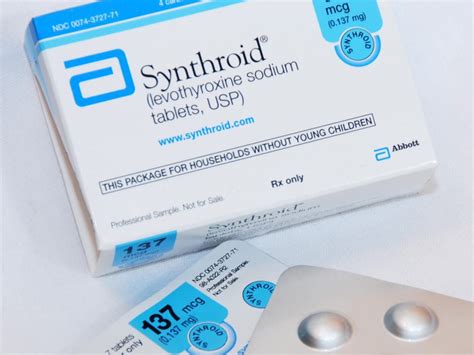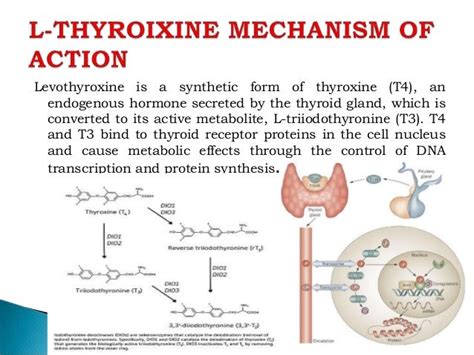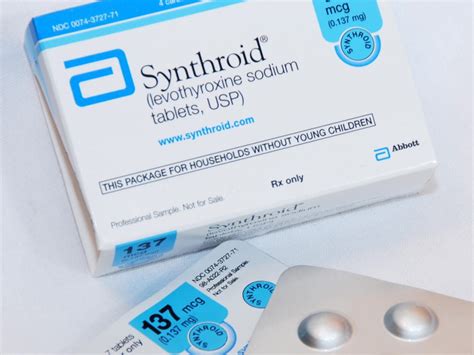Intro
Discover key facts about Levothyroxine, a thyroid hormone replacement medication, including its uses, benefits, and side effects, to manage hypothyroidism and thyroid disorders effectively.
Levothyroxine is a synthetic form of the thyroid hormone thyroxine (T4), which is used to treat hypothyroidism, a condition where the thyroid gland does not produce enough thyroid hormones. Thyroid hormones play a crucial role in regulating metabolism, energy generation, and overall growth and development. The importance of understanding levothyroxine lies in its widespread use and the significant impact it has on the lives of individuals with hypothyroidism. As one of the most commonly prescribed medications worldwide, levothyroxine's role in managing thyroid health cannot be overstated. This article aims to delve into the intricacies of levothyroxine, exploring its benefits, working mechanisms, and key aspects related to its use.
The management of hypothyroidism with levothyroxine is a long-term commitment for most patients, requiring regular monitoring and adjustments to ensure optimal thyroid hormone levels. The medication's efficacy in alleviating symptoms such as fatigue, weight gain, and cold intolerance makes it a cornerstone in the treatment of hypothyroidism. Furthermore, understanding the nuances of levothyroxine treatment can significantly improve the quality of life for individuals with this condition, allowing them to manage their symptoms effectively and maintain normal metabolic functions.
The impact of levothyroxine on public health is substantial, given the prevalence of hypothyroidism in the general population. It is estimated that a significant percentage of the population suffers from some form of thyroid dysfunction, with hypothyroidism being one of the most common forms. The use of levothyroxine as a first-line treatment highlights its importance in healthcare, underscoring the need for comprehensive information on its use, benefits, and potential side effects. By exploring these aspects, individuals can make informed decisions about their health and work closely with healthcare providers to achieve optimal thyroid function.
Introduction to Levothyroxine

Benefits of Levothyroxine
The benefits of levothyroxine are multifaceted, ranging from the alleviation of hypothyroidism symptoms to the prevention of long-term complications associated with untreated thyroid hormone deficiency. Some of the key benefits include: - Improvement in energy levels and reduction in fatigue - Weight management through the regulation of metabolism - Enhanced mental clarity and focus - Regulation of menstrual cycles in women - Prevention of complications such as goiter, heart problems, and mental health issuesWorking Mechanism of Levothyroxine

Steps for Taking Levothyroxine
To ensure the effectiveness of levothyroxine, it is crucial to follow the prescribed regimen carefully. Here are some steps to consider: 1. **Take the medication on an empty stomach**: Levothyroxine should be taken in the morning, about 30 minutes to 1 hour before breakfast, to enhance absorption. 2. **Use the correct dosage**: The dosage of levothyroxine is tailored to the individual's needs, based on their thyroid hormone levels. It is essential to adhere to the prescribed dosage to avoid over- or under-treatment. 3. **Monitor thyroid hormone levels regularly**: Regular blood tests are necessary to assess the effectiveness of the treatment and make any necessary adjustments to the dosage. 4. **Be consistent**: Take the medication at the same time every day to maintain stable thyroid hormone levels.Practical Examples and Statistical Data

Common Misconceptions About Levothyroxine
Several misconceptions surround the use of levothyroxine, including the belief that it is a "cure" for hypothyroidism or that it can be used for weight loss. It is essential to understand that levothyroxine is a replacement therapy aimed at restoring normal thyroid function in individuals with hypothyroidism. Its use for weight loss in individuals with normal thyroid function is not recommended and can lead to serious health complications.SEO Optimization for Levothyroxine

Keyword Density and Synonyms
Maintaining an optimal keyword density of 1-2% without engaging in keyword stuffing is vital for SEO optimization. Using synonyms and related phrases, such as "thyroxine," "T4," and "hypothyroidism medication," can diversify the language and improve the article's relevance to search queries. This approach not only enhances readability but also ensures that the content is informative and useful for readers.Encouraging Engagement

Call to Action
If you or someone you know is living with hypothyroidism, we encourage you to consult with a healthcare provider to discuss treatment options, including levothyroxine. Remember, timely and appropriate treatment can significantly impact the management of hypothyroidism, leading to improved health outcomes and a better quality of life.What is levothyroxine used for?
+Levothyroxine is used to treat hypothyroidism, a condition where the thyroid gland does not produce enough thyroid hormones.
How does levothyroxine work?
+Levothyroxine works by replacing the missing thyroid hormones in the body, thereby restoring normal metabolic functions.
What are the benefits of taking levothyroxine?
+The benefits of levothyroxine include the alleviation of hypothyroidism symptoms, improvement in energy levels, regulation of metabolism, and prevention of long-term complications associated with untreated thyroid hormone deficiency.
